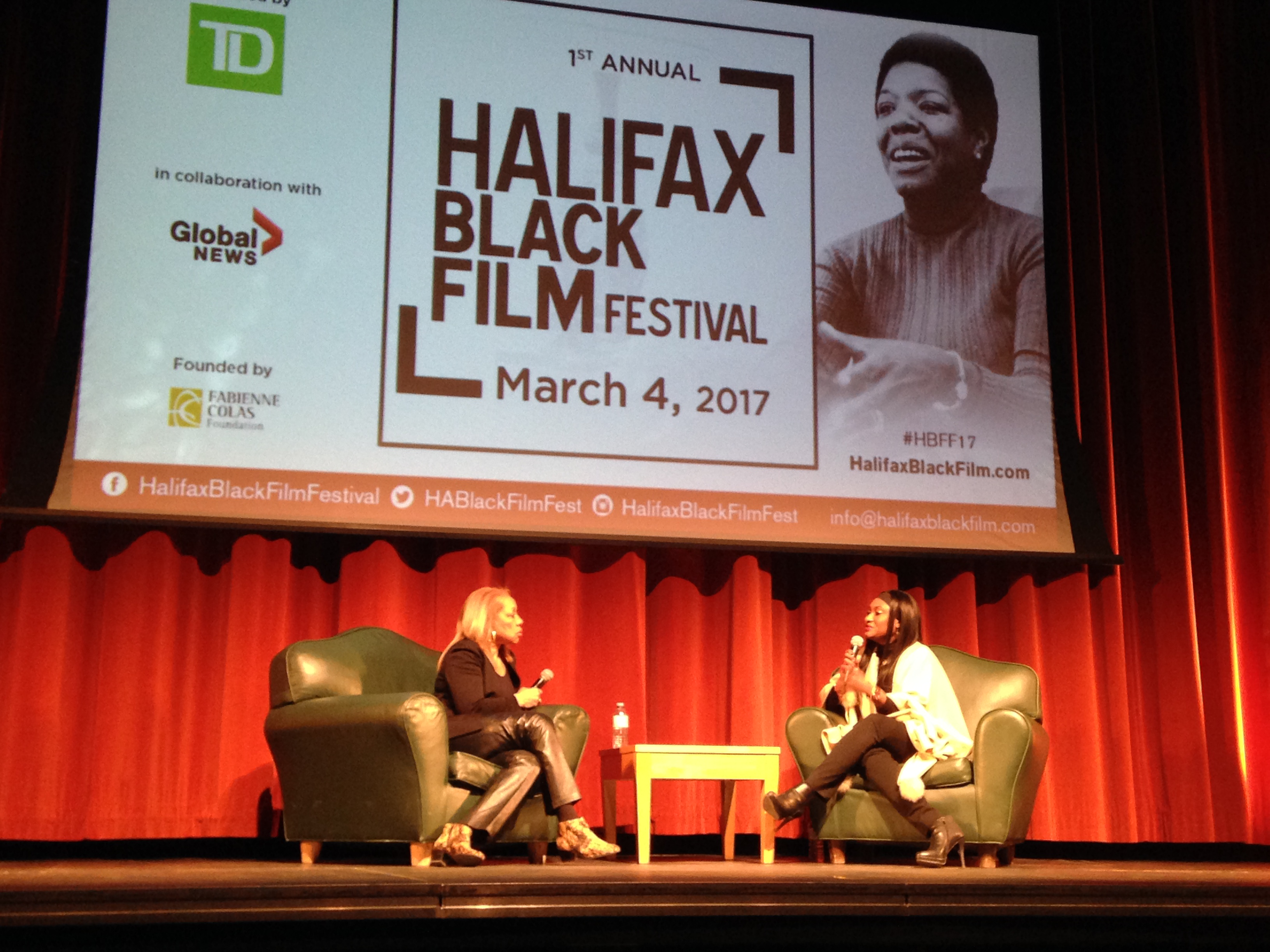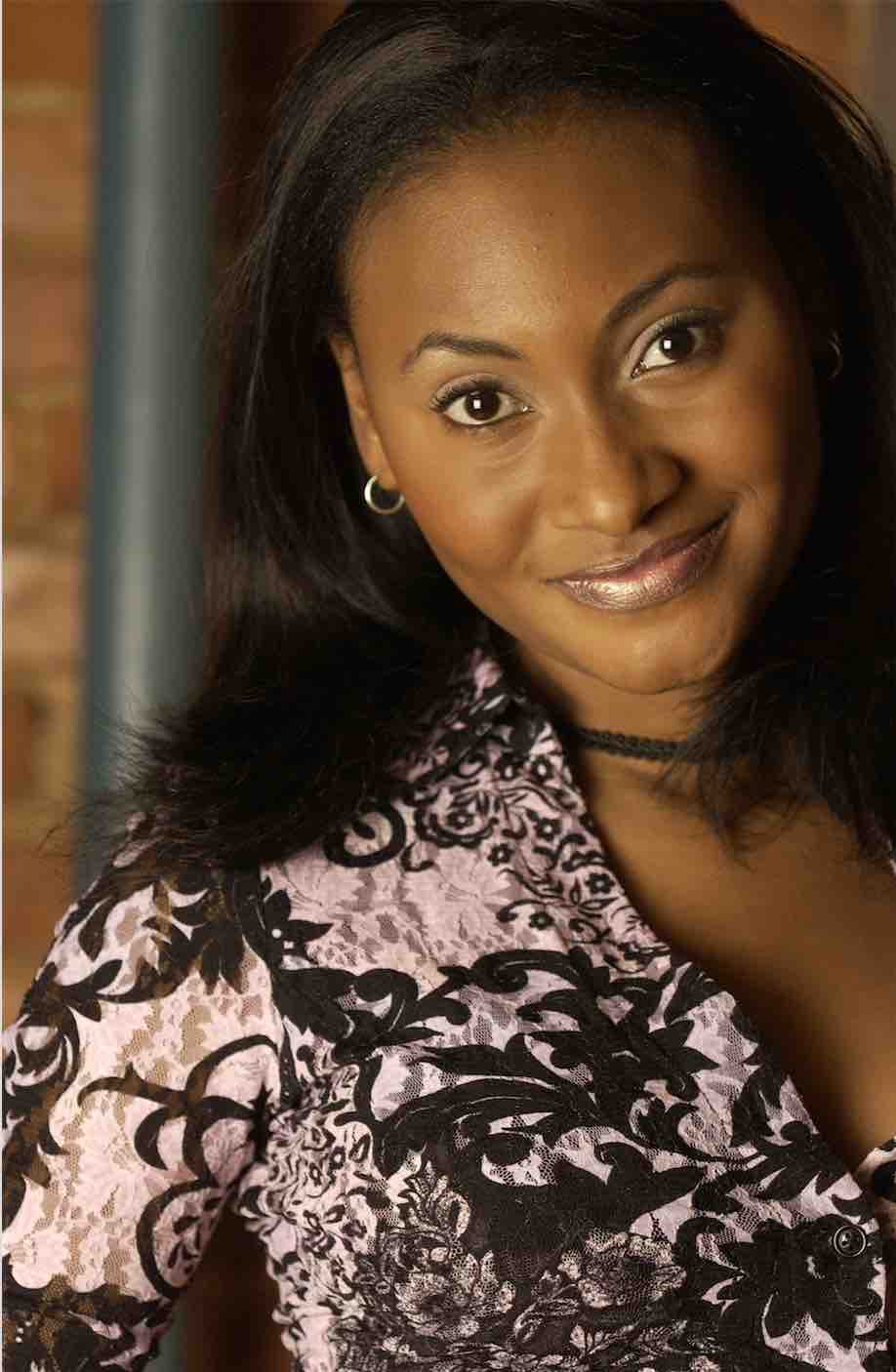Film Festival
Halifax Black Film Festival has more dates, events this year
Q&A: festival founder describes workshop, panel discussion, films to come

caption
Co-director Rita Coburn Whack and festival founder Fabienne Colas at the 2017 event.
caption
Co-director of Maya Angelou: And Still I Rise, Rita Coburn Whack, and festival founder, Fabienne Colas, at the 2017 event.The Halifax Black Film Festival is coming back for its second year — and this time it’s bigger.
On Thursday, organizers announced the lineup for the second annual festival, which is held from March 2 to 4. Events will take place at various locations around Halifax, including at the Spatz Theatre, the Canadian Museum of Immigration at Pier 21 and the Lord Nelson Hotel.
Last year, the event took place for one night and featured one film: Maya Angelou: And Still I Rise.
Many of the films being shown this year are being screened for the first time in Atlantic Canada. The closing film, Black Cop, is Atlantic-Canada-made and filmed in Halifax. It was previously shown as part of FIN: The Atlantic International Film Festival. Related stories
Similar festivals started by founder Fabienne Colas have been operating in Montreal since 2005 and in Toronto since 2013. This year is its second in Halifax. Local groups partnering with the event include Women Making Waves, the Black Cultural Centre and the North Preston Community Centre.
Following the lineup announcement, Colas spoke with The Signal about what has changed since last year.

caption
Fabienne Colas, president and founder of the Halifax Black Film FestivalCan you talk about how this year is different from last year?
Last year, actually, people asked ‘why is it in Montreal; you have close to 100 films and (it’s) in Toronto as well? Why is it here that you’re bringing this one?’ But you know, it’s not said in a mean way. People were just wanting for more. That question alone was encouraging. Last year was a first edition; it was a test of the water. We wanted to make sure that we understand the need of the audience, the need of the community, the need of the population. So, we started with one film that was a very powerful film with Maya Angelou. That was a successful one-film edition and people kept asking for more.
Was it your choice and the organizers’ choice to get more of the community partnerships happening, or was it the demand of the communities who said they wanted to get involved?
I think it goes both ways. Last year, when we started, we extended an invitation to everybody and everybody came, and we had everyone coming and supporting us and helping us promote. There was a lot of excitement about the festival since the beginning. We were thrilled. It was in March (last year), and in May I decided to meet personally with (Emile Castonguay), the co-founder of the festival and we met with a lot of the community leaders and organizations. We could see what we can bring that would be meaningful to the community, how we can help, how we can enrich the community. Some reached out and sometimes we reached out as well.
How was the opening film, The Rape of Recy Taylor, chosen to be the opening film?
When you think about the #MeToo movement, when you think about how transformational it is, when you think about how inspirational it is, when you think about how empowering this movement is today, when you think about the fact that we’re in 2018 and it’s time to change the culture out there, I believe out of all the films we wanted to show, The Rape of Recy Taylor was the one. I’m a huge fan of everything women. We need more women involved. We need more women to spark conversations. We need more women everywhere. This is why it makes sense. It’s a film about a woman that was raped in the ’40s in the segregated south of the United States. Her story is front and centre today; it’s still more relevant than ever. I think it is a film that will touch people, that will inspire people to stand up for themselves. There was no other film that could have been better for that.
Viola Desmond was an honouree last year. Are there any honourees this year?
This year we’re not going to pay tribute to anyone exactly. We’re going to honour the spirit of women and of women that are standing up for themselves. But for sure we’re going to be talking about Viola Desmond over and over again because we’re proud and we should celebrate that.
This year has the workshop and panel too. What are you hoping attendees get out of those?
I hope they get to learn something about producing, about film production. And they get to learn from the very best. (Laurens Grant) is an Emmy winner for producer. She’s also the consulting producer of The Rape of Recy Taylor, so I encourage everybody to come to the film on Friday and then attend the workshop the next day. For the Diversity on Screen panel discussion, I really want everybody to come with some ideas, some solutions. We’re going to talk about what’s the current state of diversity off and on screen today, what can be improved, how can we move forward to really have an impact and who should contribute to what. We need to know ‘OK, we’re in this problem now, how can we move forward with diversity?’ We’re going to explore that with all the panellists, but also people from the audience will be able to ask questions.
This interview has been edited and condensed for clarity.

